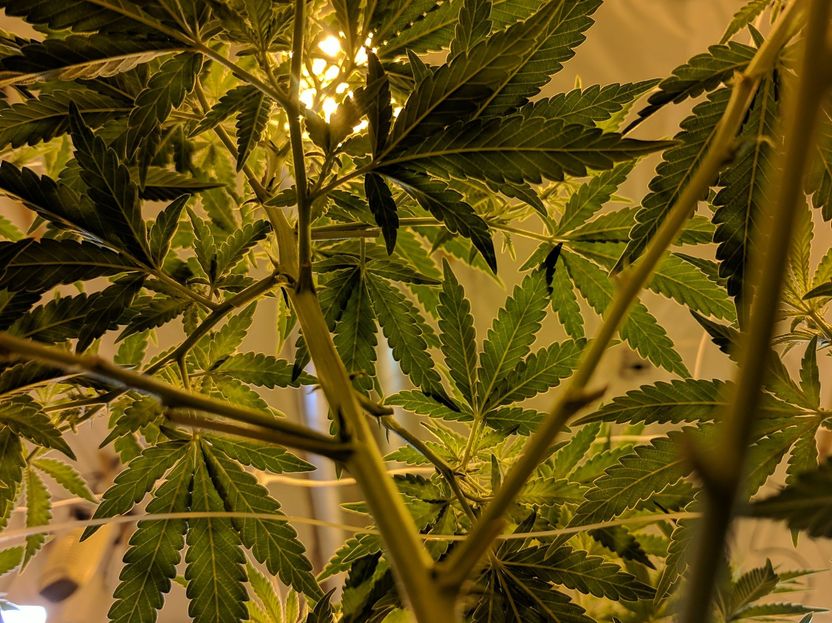Cannabis research: University of Hohenheim launches international research network
Research institutions and companies in Germany and Canada are working together to develop cannabis without intoxicant suitability for the market
Medicines, dietary supplements, skin care...: All this and much more can be made from cannabis variants. But there are still many unanswered questions: How does cannabis genetics thrive in the Central European climate? What possibilities are there to dry the flowers and make them usable? And how can cannabis be harvested per hectare? Prof. Dr. Simone Graeff-Hönninger from the University of Hohenheim in Stuttgart has been working on so-called phytocannabinoid-rich cannabis for a long time. Her team has set up a German-Canadian network to promote research and involve companies at an early stage. The project is funded by the Federal Ministry of Economics and Energy and coordinated by the University of Hohenheim.
"The trade has now realised that the cannabis plant has a lot of potential," explains Prof. Dr. Simone Graeff-Hönninger, head of the working group on cultivation systems and modelling. Cannabis was originally cultivated in Germany as a fibre plant for ropes, clothing or paper. Then the plant fell into disrepute as a potential drug plant. Many health-promoting substances could be extracted from cannabis: the so-called cannabinoids. According to Prof. Dr. Graeff-Hönninger, these are particularly valuable in medicine, nutrition or body care.
"However, the knowledge about the cannabis plant and the experience values in Germany are still quite low", says Prof. Dr. Graeff-Hönninger. "For example, we do not know how different genes thrive in our climate and there is no technology yet to harvest large quantities of medicinal cannabis."
Research and trade work hand in hand
According to Prof. Dr. Graeff-Hönninger, the trade lacks not only the necessary knowledge, but also access to cannabis plants. "Although the cannabis used cannot be used as a narcotic, cultivation in Germany is strictly regulated."
The research institutions, in turn, need information from companies as to which products are being planned or are desired by consumers. "This is the only way we can develop cannabis genetics that meet the demands of the trade."
Research and companies benefit from each other. The enormous additional knowledge resulting from the cooperation with the Canadian partners leads to an even greater advantage for the companies
participating in the network. "Cannabis has been a topic in Canada for much longer than in Germany," explains project member Samantha Jo Grimes. "There's a lot more experience there that we can't transfer one-to-one, but we can learn from."
Prof. Dr. Graeff-Hönninger and her team are not only taking over the management of the first German-Canadian network funded by the BMWI as part of the "International ZIM Networks" funding programme, they are also working specifically on the further development of cannabis genes rich in phyto-cannabinoids and poor in THC.
"We are working on genes that can be established in the field in the Central European climate," explains Prof. Dr. Graeff-Hönninger. "We need to find out how different genes react to environmental factors, solar radiation, irrigation, fertilization, etc."
The plants are medicinal, phytocannabinoid cannabis. The plants do not contain intoxicants, but other substances, so-called cannabinoids, which can be used in pharmacy or in the food sector.
"The exact composition of the ingredients varies from genetics to genetics, as do other properties," said Prof. Dr. Graeff-Hönninger. In the future, the researchers want to advise breeders and companies which genetics is most suitable for which product and provide seeds for selected genetics.
Further network partners desired
The project "Medical phytocannabinoid-rich (PCR) Cannabis" is the first German-Canadian network funded by the Ministry of Economy and Energy. It currently consists of four Canadian and seven German partners.
Above all, Prof. Dr. Graeff-Hönninger would like to encourage medium-sized companies to join the network. This is an excellent opportunity for companies to enter the cannabis sector. "Companies have the opportunity to bring their own questions to the research institutions. You can also apply to the Ministry for funding for your own projects." Within the framework of the network, funding of 380,000 euros per project is possible.
The network "Medicinal phytocannabinoid-rich (PCR) cannabis" is initially approved for 18 months, but with the option of being funded for a further three years.

symbol image
Photo by Drew Taylor on Unsplash
Note: This article has been translated using a computer system without human intervention. LUMITOS offers these automatic translations to present a wider range of current news. Since this article has been translated with automatic translation, it is possible that it contains errors in vocabulary, syntax or grammar. The original article in German can be found here.

























































